Do Solar Panels Work on Cloudy Days?
Anyone on the fence about buying solar panels has probably wondered, “Do solar panels work on cloudy days?” Millions of people use solar panels worldwide, but only a few know the answer. Whether you are considering switching to solar energy or already relying on solar for your home energy needs, it is important to understand how reliable solar panels are, even on cloudy days.
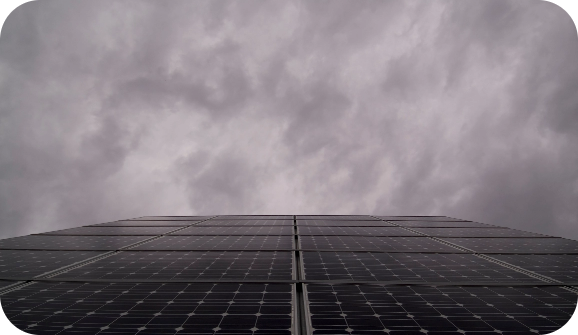
So, does solar work on cloudy days? The short answer is that, yes, solar panels do work on cloudy days. Clouds may reduce the production of solar panels. How much will depend on the type and amount of clouds, but solar panels rarely shut off due to cloudy weather.
How Do Clouds Affect Solar Panels?
As the name suggests, solar panels get energy from the sun; they rely on photovoltaic (PV) technology, and PV cells absorb energy from sunlight that passes through and convert it to electricity
We also know that clouds block the sun, but a cloud’s effect on solar panels can vary. The way clouds affect solar panels depends on the Cloud Cover Factor (CCF) — the term used to describe the impact of clouds on solar panels.
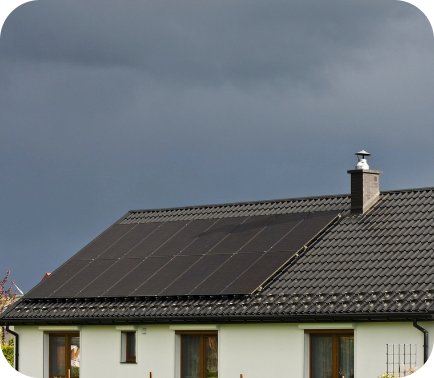
Do Solar Panels Work on Cloudy Days?
Some hesitant buyers ask, “Do solar panels ‘charge’ on cloudy days?” Solar panels can still generate energy during cloudy days — but not as much as on a clear sunny day. The effect of clouds on solar panel production will depend on the Cloud Cover Factor. Cloudy days are classified as when the sky is at least 50% covered by clouds. On the other hand, an overcast day means the sky is completely covered by clouds, during which you can expect approximately 10%-25% less energy production from your solar panels.
Clouds can diminish solar production, but they can also play an important role in energy distribution in our atmosphere and benefit solar panels. On partly cloudy days, panels absorb direct sunlight and light reflected by clouds — meaning clouds can increase the energy generated by solar panels. While some cloud formations, like cumulus clouds in the lower atmosphere, can reflect sunlight away from solar panels and back into space, others can reflect sunlight to Earth and onto your solar panels. These clouds can even cause a phenomenon beneficial to solar panels called “cloud lensing,” which magnifies sunlight.
Rain
Rain brings more clouds and completely obscures sunlight, so solar panels do not work as well in the rain. Solar panels are still able to generate energy in the rain, but they may be significantly less compared to better weather conditions.
At the same time, rain is needed for optimal solar panel function, as rain and wind actually help clean solar panels and achieve their maximum energy generation potential.
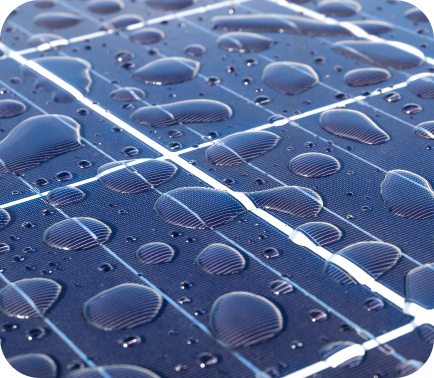
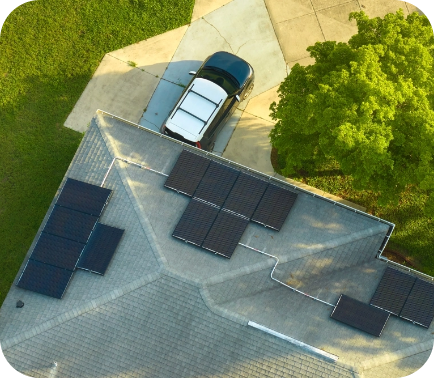
In the Shade
Similar to clouds, the effect of shade on solar panels depends on the amount of shade. Solar panels in the shade will produce less energy compared to when they are in direct sunlight.
Snow or Colder Temperatures
Solar panels produce energy by absorbing sunlight, not heat. Exposure to the sun is the most important factor for solar panel function as opposed to temperature. Snow can hinder the energy production of solar panels. However, owners need not worry as snow easily slides off once a portion of their solar panels is exposed to warming sunlight.
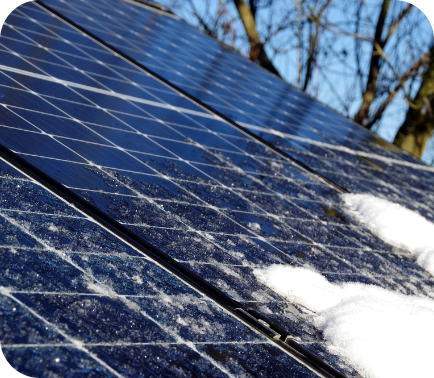
The Real Reason for the Popularity of Solar Panels
Clouds and weather do have an effect on the energy generated by solar panels, but this does not mean that solar panels are not ideal for rainy and cloudy climates. On the contrary, some of the highest concentrations of solar panel users are in cloudy locations.
The main reason for the popularity of solar panels is not the location or amount of sunlight but the cost of electricity in the area. Many top cities for solar power in the United States are not particularly sunny. Rather, they have high utility rates. Bill savings and return on investment are what motivate people to switch to solar power.
Solar panels are a reliable and cost-effective way to power your home. Factors that affect solar panel performance should not discourage those considering switching to solar, as solar energy is a clean, abundant source.
So, Do Solar Panels Work on Cloudy Days?
Owners and those considering switching to solar will be pleased to know that the answer is yes. Some factors may affect solar panel performance, but these should not be cause for concern — as long as your panels are optimally positioned in a location that gets plenty of sunlight throughout the day. We’ve listed some ways in addition to the position and orientation of your panels to ensure you maintain power on cloudy days.
Position and Orientation
If you want to generate more power on days when it’s cloudy, it’s advisable to consult with experienced solar advisors who can help you optimize panel placement and utilize advanced technologies. The team of skilled solar installers at Axia can offer you expert advice on this subject and provide you with the industry’s highest quality solar products from Qcells, the leading manufacturer of solar panels in the United States.
Incorporate a Solar Battery
Integrating energy storage systems, such as solar backup batteries, with your solar panel setup allows you to store excess energy generated during sunny periods for use during cloudy days. By storing surplus electricity, you can ensure a steady power supply even when solar production is reduced. The stored energy can be used during overcast conditions or at night, providing a reliable source of electricity and reducing dependency on the grid.
Obtain a Professional Installation
A professional solar installation can increase the odds of maximizing power production on cloudy days. Solar installers can optimize the positioning and tilt of the panels for optimal sunlight capture, ensuring they are not obstructed by shading. They can also incorporate advanced technologies such as micro-inverters or power optimizers to mitigate the impact of shading on panel performance. If you’re new to solar or have any doubts about your ability to optimize your new solar technology, rely on experienced solar advisors like those at Axia.
Discover the Benefits of Energy Independence with Axia
If you are on the fence about switching to solar, get in touch with us. One of our solar advisors will gladly answer all your questions and help you start switching to a more environmentally friendly and dependable energy source for your home!